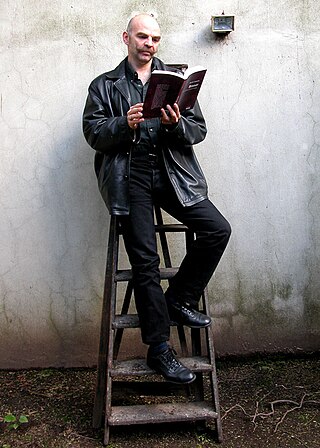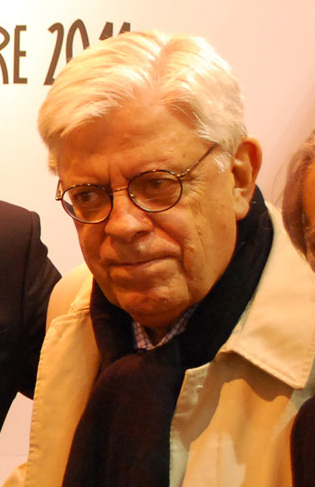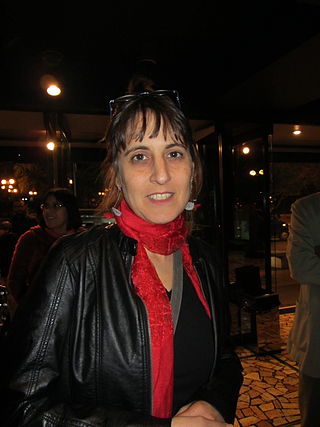
Alma Guillermoprieto is a Mexican journalist. She has written extensively about Latin America for the British and American press, especially The New Yorker and The New York Review of Books. Her writings have also been widely disseminated within the Spanish-speaking world and she has published eight books in both English and Spanish, and been translated into several more languages.

Vicente Verdú was a Spanish writer, journalist and economist.

Juan Villoro is a Mexican writer and journalist and the son of philosopher Luis Villoro. He has been well known among intellectual circles in Mexico, Latin America and Spain for years, but his success among a wider readership has grown since receiving the Herralde Prize for his novel El testigo.

Karen Marón is an Argentine journalist, war correspondent, producer, international analyst and writer, renowned as one of the top 100 most influential war correspondents in the world in covering armed conflicts, with coverage in more than 30 countries since 2000. As international correspondent specialized in armed conflicts and international politics she has covered conflicts in the Middle East, Latin America, Persian Gulf including the most dangerous places of the world as Iraq, Syria, Lebanon, Colombia, Libya and the Israeli–Palestinian conflict from the Second Intifada up to Israel's military offensive on Gaza Strip.

Juanita León García is a Colombian journalist, writer, and public speaker. She is best known as the founder and director of the news website La Silla Vacía.

Martín Caparrós is a writer,and social commentator. His father was Antonio Caparrós, a renowned psychiatrist. Caparrós began professional writing at age sixteen. His first professional job in journalism was with the now-defunct daily Noticias. He also wrote extensively for international publications, including The New York Times, The Guardian, El País, and The Washington Post.

Hermenegildo Sábat was an Argentine-Uruguayan caricaturist.

El Malpensante is a Colombian literary magazine of reportage, commentary, criticism, essays, fiction, satire, short stories, graphic art and poetry founded in 1996. Its founders were Andrés Hoyos Restrepo and Mario Jursich Durán. The name of the magazine was extracted from a book of aphorisms written by Gesualdo Bufalino.
María Teresa Ronderos is a Colombian journalist best known for her work on the magazine, "Semana".

Mariana Enríquez is an Argentine journalist, novelist, and short story writer.

Paula Escobar Chavarría is a Chilean editor, columnist, journalist, professor and writer. She is a recipient of the Lenka Franulic Award. She is an opinion columnist at La Tercera, host and panelist on CNN Chile, Founder and executive director of The Women and Media Chair at Universidad Diego Portales, and tenured professor at The Faculty of Communications of UDP.

Alejandra Costamagna Crivelli is a Chilean writer and journalist.

Roberto Felipe Merino Rojo is a Chilean writer and journalist.

Anagrama is a Spanish publisher founded in 1969 by Jorge Herralde. In 2010 it was sold to the Italian publisher Feltrinelli.

María Seoane is an Argentine economist, journalist, and writer who has ventured into film. She has won numerous awards and published eight books on political issues in Argentine history. She was the director of LRA Radio Nacional from 2009 until her resignation on 21 December 2015.
Susana Rotker was a Venezuelan journalist, columnist, essayist, and writer.
Constanza Portnoy is an Argentine photographer and photojournalist who has won a number of international awards. She was selected as Photographer of the Year 2017 by the Tokyo International Foto Awards, was the 2018 laureate of the French-based International Women Photographers Association, and in August 2018 was the winner of the Beca Oxfam FNPI award for journalism on gender inequality.
Eva Díaz Pérez is a Spanish journalist and writer. She is also a teacher of cultural journalism at the EUSA University Center and a lecturer. She has received the Andalusian Journalism Award, and in July 2019 she was appointed director of the Centro Andaluz de las Letras (CAL).

Giannina Segnini Picado is a Costa Rican journalist recognized for having uncovered two political scandals that led to convictions of former presidents – the ICE-Alcatel and Caja-Fischel cases. She has become a distinguished figure in Latin America for her work in investigative and data journalism.
The Cirilo Rodríguez Journalism Award is an award given annually by the Segovia Press Association (APS), in collaboration with the Federation of Journalist Associations of Spain (FAPE). It "is destined to publicly recognize the best work of a correspondent or special envoy of a Spanish media outlet abroad" during the preceding year, and the jury "can contemplate the trajectory of the candidate" throughout their professional career. The winner receives a prize of €6,000 and a glass trophy named Lente de la tierra, made by the Real Fábrica de Cristales de La Granja.















